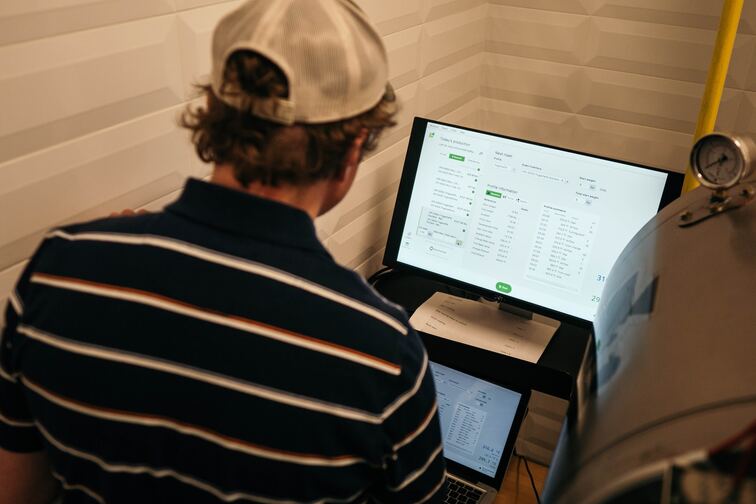There is a fine balance between critical evaluation and the dangers of overanalysis in the complex fabric of decision-making. The thin line between these two worlds can frequently become hazy, sending people down a rabbit hole of constant analysis and reluctance.
A crucial skill for sustaining mental health and making wise decisions is knowing the warning signals of overanalyzing and learning how to stop this destructive loop.

Causes of Over Analyzing
In order to make your way through this cognitive maze, it is crucial to comprehend the root reasons for over analyzing. The tendency to overanalyze is influenced by a number of variables, including personality qualities and the stresses of living in a fast-paced environment. We may start to identify solutions to find a balance between careful thought and decisive action by addressing these issues.
Stress and Anxiety
The desire to make the best judgments grows as demands from numerous aspects of life increase. The inherent unpredictability of decision-making, however, frequently collides with this increased drive for perfection, leading to a vicious cycle of overanalysis.
Stress may distort a person's viewpoint on making decisions since it results from both internal and external forces. Stress levels can rise when people worry about choosing the wrong thing, which makes them think that only thorough research will stop terrible things from happening. In this case, seeking assurance becomes a never-ending hunt for the elusive "perfect" answer.
Anxiety feeds the over analyzing fires even more. People might become entangled in a web of endless ruminating if they are worried about possible undesirable outcomes and have a tendency to exaggerate the importance of decisions. The analytical process becomes more intense as worry increases, frequently entering a loop that is overpowering and unhelpful.
Stress, anxiety, and overanalysis are all related and reinforce one another. Anxiety is brought on by stressful circumstances, which in turn increases the need to carefully consider all options before making a choice. Even seemingly unimportant decisions can become the focus of attention and anguish due to the interaction between internal emotional states and external stimuli.
Perfectionism and Control Issues
Perfectionists aspire to do everything perfectly and have impossible expectations for themselves. This kind of thinking might unintentionally result in over analyzing as every choice becomes a chance to reach the illusive state of perfection.
A never-ending cycle of analyzing possibilities, pursuing the unreachable ideal, and delaying action can be brought on by the fear of making mistakes and the reluctance to accept faults.
Control problems make the propensity to overanalyze even stronger. A perfect storm for analysis paralysis is created by the desire to exercise control over outcomes and the conviction that rigorous analysis is the way to achieve this control.
People with control difficulties frequently find it difficult to delegate because they worry that doing so can result in undesirable results. The obsessive concentration on details and the resistance to make decisions without thorough consideration might result from this drive to control every aspect of a situation.
Overanalysis, control problems, and perfectionism all have complex and entangled relationships. Insatiable curiosity, exaggerated emphasis given to little details, and an overwhelming unwillingness to make judgments are all signs of the quest for perfection and control. Effective decision-making is hampered by this, and the process also loses its fun and spontaneity.

Low Self-Esteem/Lack of Confidence
An intriguing psychological phenomenon is the complex interplay between one's self-perception and the propensity to overanalyze. The spiral of overanalysis may be substantially influenced by low self-esteem and a lack of confidence, generating a circle that feeds emotions of inadequacy and uncertainty.
People with poor self-esteem frequently have self-doubts about their qualifications and values. This self-doubt can result in a heightened fear of making errors and a persistent need for approval from others. These people may overanalyze situations in an effort to avoid failure or criticism, thinking that a thorough investigation would protect them from adverse judgment.
This conduct is amplified by insecurity. People who lack confidence in their judgment may constantly question their decisions. As one's confidence in their capacity to make wise judgments deteriorates, the quest for certainty turns out to be a pointless endeavor. This lack of confidence might encourage the use of extensive analysis as a crutch for making decisions, thereby reviving the overanalysis cycle.
When it comes to making decisions, a vicious cycle is engendered by low self-esteem and lack of confidence. Over analyzing can result in a dread of acting, which promotes the idea that one's choices are always bad. This loop can be incapacitating, stopping people from progressing and impeding personal growth.
Unhealthy Thinking Patterns and Habits
The human mind is a complicated landscape of ideas, feelings, and patterns, some of which unintentionally lead us down the rabbit hole of excessive analysis. The cycle of analysis paralysis may be significantly exacerbated by unhealthy thought patterns and behaviors that are firmly embedded in our cognitive functions.
One such trend is catastrophe thinking. People who catastrophize tend to emphasize potential bad consequences when presented with choices, seeing the worst-case situations as the only options. This erroneous viewpoint feeds their worry and panic, leading them to overanalyze situations in an effort to prevent these fictitious disasters.
Another temptation is thinking in black-and-white or dichotomous terms. This type of thinking has no place for the middle ground; everything is either all nice or all awful. Such people can think that every imperfect judgment is equivalent to total failure. This extreme point of view may result in extensive investigation in search of an impossibly high standard.
Additionally, the tendency to overthink might lead to the "paralysis by analysis" problem. Excessive decision-making ruminators frequently concentrate on the little things while neglecting the broader picture. This obsession with minutiae can make decisions seem more difficult than they are, which can result in overanalysis and subsequent indecision.

Symptoms of Over Analyzing
Many different signs and symptoms of analysis paralysis might indicate to the internal conflicts and thought patterns that underlie it. Understanding these signs is essential for dealing with the problem and figuring out how to strike a better balance between analysis and action. Some typical signs include:
Indecisiveness: Over analyzing frequently results in trouble making judgments of any size. It's possible that you'll spend a long time analyzing your alternatives without making a decision.
Rumination: Over analyzing is characterized by ruminating over a choice or issue incessantly, going over the same facts repeatedly, and being unable to let it go.
Excessive Worry: Over analyzing has a tendency to cause undue concern about possible consequences. The negative effects of your choices could be keeping you awake at night.
Perfectionism: Seeking perfection and feeling pressure to make the "perfect" decision can result in over analyzing a situation as you attempt to foresee and correct any potential errors.
Inaction: Over analyzing things frequently ends in inaction. You may put off making choices or putting off taking action if you are preoccupied with the analyzing process.
Physical Symptoms: Because continual analysis puts a load on the mind, prolonged overanalysis can cause physical symptoms including tension, headaches, and even exhaustion.
Doubting Yourself: Constant examination might make you less confident in your ability to make decisions, which can cause self-doubt and uncertainty.
Seeking Excessive Information: Over analyzing may be indicated by an excessive need for knowledge, even when it is not required or relevant. This is an effort to discover unquestionable truth.
Overwhelm: Feeling overwhelmed by the sheer amount of information, choices, and factors might be a sign that you've gone too far with your overanalysis.
Time Consumption: Over analyzing is evident when decisions receive an excessive amount of time spent on them when they shouldn't.
Difficulty Letting Go: Over analyzing might manifest as a persistent need to review decisions you've already made and wonder if you made the proper option.
Anxiety and Stress: Because over analyzing requires ongoing mental effort to consider every detail, it frequently results in higher levels of worry and stress.
Effects of Over Analyzing on Mental Health
The human mind has a remarkable capacity for scrutiny, assessment, and analysis in the complex dance of decision-making and problem-solving. This talent for analysis may, however, change from a valuable weapon into a terrible antagonist like any skill used to its utmost.
A depressing glimpse into how the seemingly logical act of in-depth thought may spiral into a loop of anguish and disquiet is provided by the impact of over analyzing on mental health. The prevalence of overanalysis and its effects on mental health have come to light as people in the modern world are overrun with options, demands, and complications.
Poor Concentration & Brain Fog
In the life of individuals prone to overanalysis, "brain fog," a word widely used to describe a feeling of mental haziness or bewilderment, regularly makes an appearance.
Decisions may seem even more elusive as a result of the mental environment that might be produced by the constant examination and information overload. As mental clarity deteriorates, this may result in lower productivity, diminished mental agility, and a feeling of dissatisfaction.
Over analyzing, poor focus, and brain fog all have complex relationships. More cognitive pressure is placed on the brain as one tries to make their way through the maze of excessive analysis.
This can then result in a vicious loop where lack of concentration causes overanalysis, which then makes the lack of concentration worse.
Sleep Disturbances & Insomnia
The repercussions of excessive analysis might creep into even our periods of rest during the calm hours of the night. The constant loop of analysis paralysis causes sleep, a crucial component of both mental and physical health, to become a casualty, leading to sleep disorders and insomnia.
It gets harder and harder to unwind at the end of the day as the mind struggles with constant inspection and the never-ending search for the "perfect" choice. There is a constant state of increased mental activity as the thoughts from the previous day frequently continue to run through the head.
This over analyzing-induced condition of mental hyperarousal can significantly hinder the kind of relaxation required for sound sleep.
The resultant insomnia, or inability to get to sleep or stay asleep, is demoralizing. Over analyzing itself can cause worry about possible consequences and hypervigilance, which can interfere with the body's normal sleep processes. As a result, people become trapped in a loop where over analyzing leads to sleep problems, and those problems in turn make over analyzing's cognitive and emotional difficulties even worse.
What Are The Dangers of Over Analyzing?
Over analyzing can have a number of detrimental effects in addition to being a useful cognitive ability in some circumstances. Among the risks of over analyzing are the following:
Analysis Paralysis: Excessive analysis might result in hesitancy and passivity. Analyzing every choice or detail incessantly can lead to overload and the inability to act or make decisions.
Stress and Anxiety: Thinking too much might make you feel more stressed and anxious. It can be emotionally and psychologically taxing to obsess about previous mistakes or imagine unfavorable scenarios.
Wasted Time and Energy: Excessive analysis can take a lot of time and mental effort. You could waste too much time thinking over pointless choices or speculative situations when you might be doing something more useful or pleasurable.
Relationship Stress: Continually analyzing other people's talks and interactions might cause miscommunications and relationship stress. You can come out as extremely critical or mistrustful, which can damage relationships and communication.
Missed Opportunities: Over analyzing might cause you to lose out on possibilities because you spend too much time thinking about possible drawbacks or unknowns. This can be especially harmful in social, personal, or professional settings.
Perfectionism: Over analyzing is frequently linked to perfectionism, which has drawbacks. Although aiming for perfection is commendable, perfectionism can be crippling, resulting in irrational expectations and long-term discontent.
Diminished Creativity: Overly analytical thinking might hinder originality. Though over analyzing tends to confine you to a restricted and cautious perspective, creativity frequently includes thinking outside the box and taking chances.
Physical Health Impacts: Long-term stress and worry brought on by excessive analysis can have negative effects on one's physical health, such as headaches, insomnia, and digestive problems.
Decision Fatigue: Over analyzing even little decisions on a regular basis can cause decision fatigue, which makes it harder to make big judgments when they do come up.
Lack of Spontaneity: Analyzing too much might lead to being too cautious, which can prevent you from taking advantage of fun, unplanned events and chances for personal development.
Is Over Analyzing A Symptom of ADHD?
It's not common to view over analyzing as a clear sign of attention-deficit/hyperactivity disorder (ADHD). The primary symptoms of attention deficit hyperactivity disorder (ADHD) include impulsivity, hyperactivity, and inattention.
These symptoms can take many different forms, including inability to concentrate, forgetfulness, impulsivity, and problems managing one's time. Activities requiring self-control, organization, and prolonged focus may be difficult for those with ADHD.
This may make it difficult to decide and digest information effectively. Over analyzing is not a prominent symptom of ADHD, but it can occasionally be a behavior linked to the attention management issues and executive function deficits that these patients frequently experience.
Impairments to executive function are one thing to take into account. Higher-level cognitive processes called executive functions aid in organizing, prioritizing, controlling urges, and making plans. Deficits in these executive processes are common in people with ADHD, which can make it more difficult to sort through information and make decisions.
Due to their propensity to become lost in a maze of ideas and facts and fail to arrive to a clear conclusion, this challenge can occasionally lead to overanalysis.
Hyperfocus is an additional consideration. Although inattention is the main symptom of ADHD, some people with the disorder also experience a phenomenon known as hyperfocus. They get so engrossed in a particular work or subject during periods of hyperfocus that they are nearly unaware of their surroundings.
Due to their extreme focus, people may overanalyze, concentrate on, or dive too deeply into a subject when they are in this condition. When someone's concentration is too focused, it might be interpreted as overthinking.
Moreover, comorbid illnesses including anxiety disorders are prevalent in people with ADHD. Overthinking can result from anxiety because people with ADHD may worry excessively about how they perform, what they decide, or what will happen in the future. The interaction of anxiety and ADHD can lead to a propensity to overanalyze events, especially when they seem high-stakes.
Is Over Analyzing A Coping Mechanism?
It's true that some people use over analyzing as a coping method. It provides a perceived sense of comfort and confidence, allowing one to regain control in uncertain or stressful situations. Since overthinking diverts attention to minute details or speculative situations, it can be a coping mechanism for avoiding dealing with uncertainty and uncomfortable feelings.
Furthermore, it could cause people to turn to other people for comfort and approval as they continue to analyze everything. Although over analyzing might provide a little relief from misery, it's crucial to remember that excessive analysis can also have unfavorable effects of its own, such as elevated tension and worry. Effective coping requires striking a balance between critical analysis and overthinking.
How To Overcome Over Analyzing?
Recognizing when you are over analyzing is the first step towards changing this tendency. Keep a tight eye on your ideas and behaviors, particularly if you find yourself falling into a loop of over-analytical thinking. Learn to identify the cues and situations that cause overthinking. Being self-aware is essential to starting a transformation.
Set specific goals and objectives before you begin to analyze a problem or make a choice. Being clear about your goals and the particular problem you need to solve can help you remain on task and keep from becoming bogged down in minutiae. A clear purpose can help you think more clearly and analyze more quickly.
Choose the knowledge that is truly necessary for comprehending a situation or for making a choice, and concentrate solely on that. Steer clear of collecting too much information that might not have a big influence on your choice or comprehension. Aim to achieve equilibrium between maintaining awareness and steering clear of excessive information.
Give your analysis a time restriction in advance. Give oneself a certain period of time, for example, to consider the issue or come to a choice. This time limit stops you from brooding constantly and drives you to be more productive. Make a decision and stick with it after the allotted time is over.
To organize your analysis, make use of frameworks and decision-making tools. You may assess possibilities more efficiently and cut down on too analytical work by using techniques like cost-benefit analysis, pros-and-cons lists, and SWOT analysis. These frameworks can help you avoid becoming bogged down in the specifics and offer a methodical approach to decision-making.
Never be afraid to ask friends, family, or coworkers for advice. The opinions of others can give insightful information and a distinct perspective on the subject at hand. Making choices alone may be burdensome; consulting with others might provide new ideas and concerns.
In case you see yourself delving into excessive analysis, purposefully redirect your attention to anything else. Take up an exercise regimen, focus on deep breathing techniques, or dedicate yourself to a pastime. These diversionary activities might give you a mental breather and momentarily refocus your attention elsewhere.
Reducing overanalysis can be especially aided by mindfulness practices. Being mindful entails paying close attention to the here and now and evaluating your thoughts objectively.
Regular mindfulness practice will help you develop the ability to detect when your thoughts are getting too strong and help you return your attention to the present. Deep breathing exercises and meditation are two methods that might help you maintain your groundedness and cultivate awareness.
Stop Over Analyzing With BeforeSunset AI
BeforeSunset AI can help mitigate overanalysis by providing structured frameworks and streamlined processes for task management. Additionally, features like task prioritization, time tracking, and progress visualization guide users toward focused actions, preventing them from getting lost in unnecessary details.

